Invited speakers
Confirmed keynotes lecturers for the Nano in Bio 2024 conference:
|
Prof. Frank Caruso
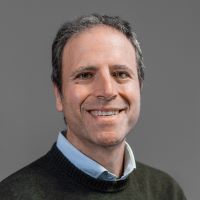
|
University of Melbourne, Australia
Frank Caruso is a Melbourne Laureate Professor and an NHMRC Leadership Fellow at the University of Melbourne. He received his PhD degree in 1994 from the University of Melbourne, and from 1994–1997 was at the CSIRO Division of Chemicals and Polymers in Melbourne. He was an Alexander von Humboldt Research Fellow and group leader at the Max Planck Institute of Colloids and Interfaces (Germany) from 1997–2002. From 2002–2012, he was an ARC Federation Fellow and from 2012–2017 an ARC Laureate Fellow at The University of Melbourne. His research focuses on developing materials for biomedical applications. He has published over 550 peer-reviewed papers with more than 60,000 citations and is a highly cited researcher. He is an Executive Editor of the ACS journal Chemistry of Materials and serves on the Editorial Advisory Board of 11 other scientific journals. He was elected a Fellow of the Australian Academy of Science in 2009 and of the Royal Society of London in 2018. He is the co-inventor of 33 patents. He is co-founder of Messenger Bio Pty Ltd (2021), a company that focuses on mRNA technologies.
Topic: Bio- and nano-materials in nanomedicine & health
|
|
|
|
|
Prof. Valeria Rondelli
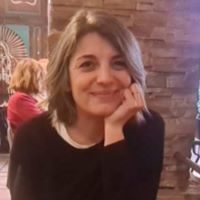
|
University of Milan, Italy
Valeria Rondelli is an experimental biophysicist with a multidisciplinar background. Her interest falls in the investigation of the self-assembly and structuring of biomolecules and nanocarriers in solution. She gave significant contributes to the development and structural description of innovative complex models of biomembranes and tissues, suitable to be investigated by advanced techniques such as neutron and X-ray scattering and reflectometry. She exploited the complex models to perform detailed structural investigation of several membrane-biomolecule interactions. Recently, her research has been focused on the biophysical investigation of natural extracellular vesicles of different origin and on the investigation of their cell internalization mechanisms. Since 2011 she authored 40 original papers, with more than 700 total citations and has an H-index of 17.
Topic: Bio- and nano-materials in nanomedicine & health
|
|
|
|
|
Prof. Sungsu Park
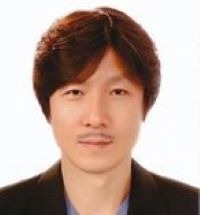
|
Sungkyunkwan University, South Korea
He graduated from Pusan National University in Korea, and received his BS degrees in 1994. He moved to the US and got his Master and Ph.D. degree from Cornell University in 1997 and 1999, respectively. After graduation, he continued his work as a postdoctoral research associate at Tokyo Institute of Technology in Japan, Cornell University and Princeton University until 2004. In 2004, he joined the faculty of Chemistry and Nano Sciences of Ewha Womans University. Currently, he works as a professor at School of Mechanical Engineering in Sungkyunkwan University. He also works as a co-principal investigator at Mechanbiology Institute (MBI) of National University of Singapore. In addition, he works as a general secretary of Korean Biochip Society. He is developing Microfabrication- and 3D printing-based methods for molecular detection of bacterial and viral pathogens in clinical samples, rapid evolution of drug resistance in cancer cells, mimicking tumor niche consisting of blood vessels and stromal cells, etc.
Topic: Bio- and nano-materials in nanomedicine & health
|
|
|
|
|
Prof. Igor Sokolov
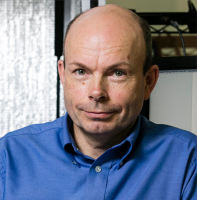
|
Tufts University, USA
Igor Sokolov received his B.S. in physics from St. Petersburg State University and his Ph.D. from D.I. Mendeleev Central Institute for Metrology, both in Russia. In 1992, he was the recipient of the E.L. Ginzton International Fellowship Award from Stanford University for his work on atomic force microscopy. Sokolov worked as a research associate in the University of Toronto's Departments of Microbiology, Physics, and Chemistry before moving to Clarkson University in 2000 to join the Physics Department, where he achieved the title of professor and served as director of the Nanoengineering and Biotechnology Laboratories Center. During his career, Sokolov has consulted for large corporations such as Proctor and Gamble, General Electric, Arkema Group, Inc. and Purdue Pharma. He has more than 180 refereed publications, including in journals such as Nature, Nature Nanotechnology, Nature Methods, Physical Review Letters, Materials Today, Advanced Materials, etc. He holds 21 patents (issued and pending).
Topic: The bio/non-bio interface
|
| |
|
|
|
|
|
Prof. Bing Xu
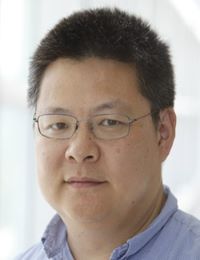
|
Brandeis University, USA
After receiving his BS and MS from Nanjing University, Bing Xu obtained his PhD in 1996 from the University of Pennsylvania. Notably, Xu lab has made pioneering contributions in several research areas, including the integration of enzyme transformation and self-assembly for developing molecular biomaterials. He synthesized the first dimeric nanoparticle consisting of quantum dot and nanomagnet for exploring nanoscience inside cells. Bing Xu was tenured, as an associated professor in Jan 2006, became a full professor in July 2008 at HKUST, then moved to Brandeis University in fall of 2008. Based on his works in HKUST and Brandeis, Bing Xu was identified by Thomson Reuters as "Highly-Cited Researchers in Chemistry" for 2014, 2015, and 2016. His currently is a professor in the Department of Chemistry, Brandeis University. His research focuses on the applications of molecular engineering in chemistry, materials science, biology, and nanomedicine.
Topic: The bio/non-bio interface
|
|
|
|
|
Prof. Mingdong Dong
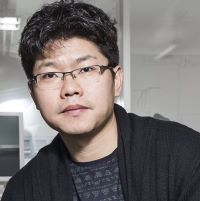
|
Aarhus University, Denmark
Mingdong Dong is a Professor at Aarhus University in Denmark. He has obtained his PhD at Aarhus University in Denmark. After obtaining his PhD degree, he continued with a Postdoctoral Harvard University, USA. He is an applied physicist with expertise in advanced surface-sensitive scanning probe microscopy (SPM). SPM-based techniques have helped researchers gain a better understanding of the structure-function relationship. With his diverse academic experience in materials science, physical chemistry, and biophysics, His research has resulted in peer-reviewed journals, including Nature, Nature Nanotechnology, Nature Chemistry, Nature Communications, PNAS, Angewandte Chemie, Nano Letters, JACS, ACS NANO, and Advanced Materials. Professor Dong is an active member of various professional organizations, including the Royal Microscopical Society, the American Chemical Society, the Materials Research Society, the Biophysical Society and Fellow of the Royal Society of Chemistry..
Topic: Bio- and nano-electrochemistry & bio applications
|
|
|
|
|
Prof. Elena Ferapontova
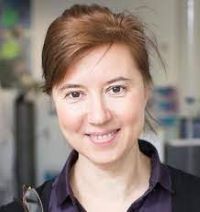
|
Aarus University, Denmark
She graduated from Lemonosov Moscow State University (MSU) in Russia. She got his PhD degree in 1998. Between 1999 and 2007, she moved to several Universities in Spain, Sweden and UK. In 2009, she joined and headed the Electrochemical, Biosensors Group (iNANO) in Aarhus University. The research of Elena’s group is focused on fundamental studies of electron transfer reactions and interfacial properties of nucleic acids and enzymes and on the development of advanced technologies for biosensors and biofuel cells.
Topic: Bio- and nano-electrochemistry & bio applications
|
|
|
|
|
Prof. Takeshi Fukuma
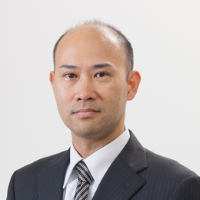
|
Kanazawa University, Japan
Professor Takeshi Fukuma heads a research group in the Division of Electronic Engineering and Computer Science at Kanazawa University in Japan. The Fukuma Laboratory focuses on molecular-scale analysis and measurements of biological phenomena using atomic force microscopy. He has been working with industry for many years to solve specific problems such as ‘biofouling’ and metal corrosion using highly sophisticated AFM technology developed at Kanazawa. He has worked with an Australian company specializing in producing materials for coating buildings to prevent the adhesion of organic materials and so-called ‘biofouling’ by microorganisms.
Topic: Instrumentation for bio- & nanotechnologies
|
|
|
|
|
Prof. David Alsteens
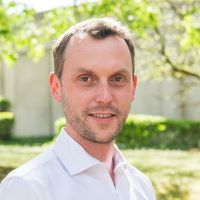
|
Université Catholique de Louvain, Belgium)
Prof. David Alsteens is Research Associate at the Fonds de la Recherche Scientifique (FNRS) and professor at the Université catholique de Louvain (Belgium) at the laboratory of Nanobiophysics within the Louvain Institute of Biomolecular Science and Technology (LIBST). He investigates, at the molecular level, the forces at play in protein structures, in cellular adhesion and in the first steps of cellular signalling (ligandreceptor binding or the binding of the virus to the cell and subsequent infection).
Topic: Instrumentation for bio- & nanotechnologies
|
|
|
|
|
Prof. Nicole Robb
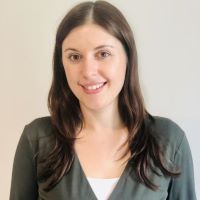
|
University of Warwick, United Kingdom
She completed a BSc in Microbiology at Imperial College London before doing a PhD at the University of Oxford, where I specialised in the field of influenza virology. Following a post-doc in Biological Physics at the University of Oxford She was awarded a Royal Society Fellowship to start my own group, using fluorescent microscopy techniques to visualise, study and detect RNA viruses at the single-molecule level. In 2020, she became an Assistant Professor at the University of Warwick, while maintaining a visiting lectureship at the University of Oxford. She combine traditional biology methods with single-molecule biophysics to study how these viruses replicate, using influenza and coronaviruses as our primary models. We also develop novel fluorescence-based methods for rapid viral detection and diagnosis. The goal of our interdisciplinary approach is to allow us to understand the basic biology of RNA viruses and lead to new ways to diagnose and combat viral disease
Topic: Instrumentation for bio- & nanotechnologies
|
|
|
|
|
Prof. Philippe Leclère
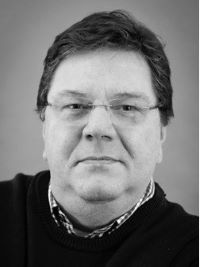
|
University of Mons, Belgium
He has promoted to Professor at the University of Mons creating and heading a new laboratory at the Physics Department named "Laboratory for Physics of Nanomaterials and Energy - LPNE". His research is aiming at the characterization by means of scanning probe microscopy techniques of the morphology and the nanoscale properties (such as electrical and mechanical properties) of organic and hybrid systems including polymer blends, nanocomposites, block copolymers, liquid crystals, and supramolecular (nano)structures. These systems are mainly studied for their use in organic electronics and energy harvesting devices, in (bio)sensors), in smart coatings as well as in biomimetic polymer-based materials. He is also involved in the development and validation of novel SPM techniques, methodologies, and data analysis to quantitatively determine mechanical, thermal, electrical and the “coupled” properties of polymeric and hybrid materials at the nanoscale.
He is author of about 200 papers (h-index of 45) in the field and gave more than 300 talks around the world.
Topic: Instrumentation for bio- & nanotechnologies
|
Confirmed experts for the Nano in Bio 2024 conference:
|
Prof. Georg Fantner
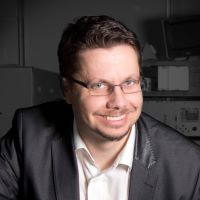
|
Ecole Polytechnique Fédérale de Lausanne, Switzerland
Georg Fantner is currently associate Professor at Ecole Polytechnique Fédérale de Lausanne and the Head of the Laboratory For Bio and Nano Instrumentation (LBNI) which is at the crossroads between instrumentation, microfabrication, and nanoscale biology. He is expert in time resolved nanocharacterization of biological systems. His special interest is in measuring fundamental processes on bacterial cells. To understand the relationship between nanoscale structure and microbiological function he augmented AFM information with advanced optical microscopy such as confocal microscopy, super resolution microscopy as well as with time-lapse fluorescent microscopy His recent works focuses on new modes for high-speed AFM imaging of molecular processes, as well as long-term time lapse imaging of cellular processes. Prof. Fantner hold several patents in the field of nanotechnology and is the co-founder of two nanotechnology companies.
Topic: Instrumentation for bio- & nanotechnologies
|
|
|
|
|
Prof. Ulrich Keyser
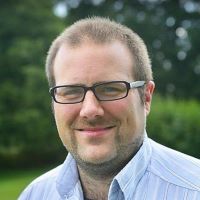
|
University of Cambridge, United Kingdom
He studied Physics at the Technische Universität Braunschweig and at Leibniz University Hannover. After graduating in Physics in 1999, he obtained his PhD from the University of Hannover in 2002. He changed his research focus to single molecule biophysics by joining the Kavli Institute of Nanoscience at Delft University of Technology as a postdoctoral researcher. After demonstrating the first direct force measurements on DNA molecules in a nanopore, he joined Leipzig University with an Emmy Noether award as a group leader in 2006. Since 2007, he is a faculty member at the Cavendish laboratory working on the physics of membrane transport with financial support of an ERC starting grant (2010-2015) and an ERC consolidator grant (2015-2020). In 2016, he became Professor of Applied Physics at the Cavendish Laboratory of the University of Cambridge. Ulrich labs’ is mainly interested in understanding RNA, its structure and its relation to biology and disease.
Topic: Bio- and nano-electrochemistry & bio applications
|
|
|
|
|
Prof. Loïc Jierry

|
Université de Strasbourg, France
Loïc JIERRY obtained his PhD in 2003 at the University of Strasbourg in the field of asymmetric synthesis. He was a Temporary Teaching and Research Associate in the group of Prof. J.-M. LEHN in 2004-2005 at ISIS and then in the group of Dr. J.-P. DUTASTA at ENS-Lyon between 2007 and 2008. During the period 2005-2007, he was Project Leader and then Visiting Scientist respectively in the company ALSACHIM (Illkirch-Graffenstaden, France) and MENARINI (Florence, Italy). In 2009, he was appointed Lecturer and then Full Professor in 2018 at the European Engineers School of Chemistry, Polymers and Materials (ECPM) of the University of Strasbourg. At ECPM, he is currently the responsible of "Chemistry&IA" Major. At the Charles Sadron Institute (UPR22-CNRS), his research activities focus on the microstructuring of hydrogels by reaction-diffusion processes, the design of biomaterials based on supramolecular hydrogels and peptide-based coacervates, the study of mechano-responsive elastomers, as well as the development of porous polymeric materials for applications in continuous flow catalysis and for waste water treatment.
Topic: Bio- and nano-materials in nanomedicine & health
|
|
Prof. Yuri Korchev
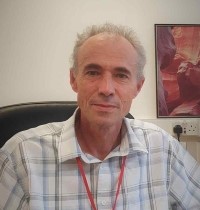
|
Imperial College of London, United Kingdom
Yuri Korchev is currently Professor of biophysics at the Faculty of Medicine, Imperial College London. His research interests include SICM for reliable imaging of living cells, alone and in combination with fluorescence microscopy and patch clamp for functional imaging, and the use of SCIM for scanning near field optical microscopy. In cellular biology, he investigates the role of mechano-sensitivity in cells and in action of hormones in regulation of ion channels; the mapping of the distribution of single functional channels in living cells. In the field of biosensors, he is interested in the use of nanopipettes as biosensors. He is one of the pioneer on cutting-edge scanning ion conductance microscopy for the life sciences in particular the development of innovative non-invasive nanopipette nanoprobes for simultaneous acquisition of 3D topography and biochemical imaging of living cells. He has published about 200 papers in the field
Topic: Bio- and nano-electrochemistry & bio applications
|
|


